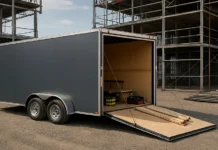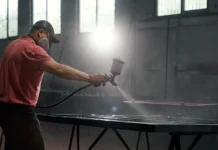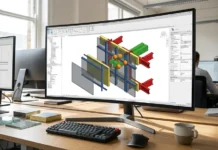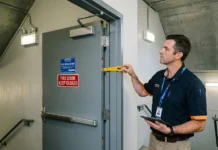Construction sites are notoriously dangerous places to work. One of the biggest risks construction workers face is electricity, so it is vital that you take precautionary measures to keep your employees as safe as possible while they are working on-site.
To help you do this, here are some of the most commonly occurring electrical hazards workers face while on construction projects, and some helpful advice on how to minimise the risk of these dangers.
Dangerous Wiring
Faulty or incorrectly installed wiring is a major hazard for construction workers. It could potentially lead to a fatal electric shock or even to a fire if the wiring has been installed near a flammable object. To prevent the risk of fire or electrical shocks, all of the wiring on your construction site should be installed by an experienced electrician. They will also conduct tests to make sure the wiring is safe once it’s in place.
If you are wondering how you can find skilled and highly rated ‘electricians near me’, all you need to do is visit MyBuilder. Simply upload details of the job, and you will shortly receive a range of free quotes from local electricians. This allows you to locate the ideal person quickly and conveniently for the task.
Power Lines
While overhead power cables are an obvious health and safety risk, arguably even more dangerous are underground power lines. These may be stumbled upon by accident and could prove fatal if they are live.
To avoid uncovering underground power cables and causing any damage to your equipment and your employees, you should consult service maps of your construction site to make sure you know whether there are any cables to avoid. If there are any, then you should conduct a thorough risk assessment to determine if or how they can be avoided, and how any risk to your staff can be avoided.
Tools And Equipment
Sometimes it is a construction worker’s own tools or pieces of equipment that may pose some kind of electrical risk, whether it’s a small handheld power tool or a substantial machine.
To lower the risk of accident and injury, you should ensure that all of your employees are trained in the use of different items of electrical equipment. In addition, all tools and machines should be inspected on a regular basis to make sure they are safe and in good working order.
Ensuring Employee Safety
As you can see, there are several threats posed by electricity – both directly and indirectly – when working on a construction site.
However, with the right training and safety procedures in place, you can help to keep all of your staff safe from harm and avoid any preventable injuries or even fatalities.
Among your procedures, you should be sure to include risk assessments, which are not only important for ensuring safety, but are a legal requirement before any construction work can take place.
When any work involving electricity or electrical equipment is required, you must make sure the work is carried out by a skilled professional. Additionally, ensure that anyone working with or near electricity is properly trained.
By taking every precaution you can on your site, you should be able to maintain high safety standards, even when working with or alongside strong electrical currents.
































